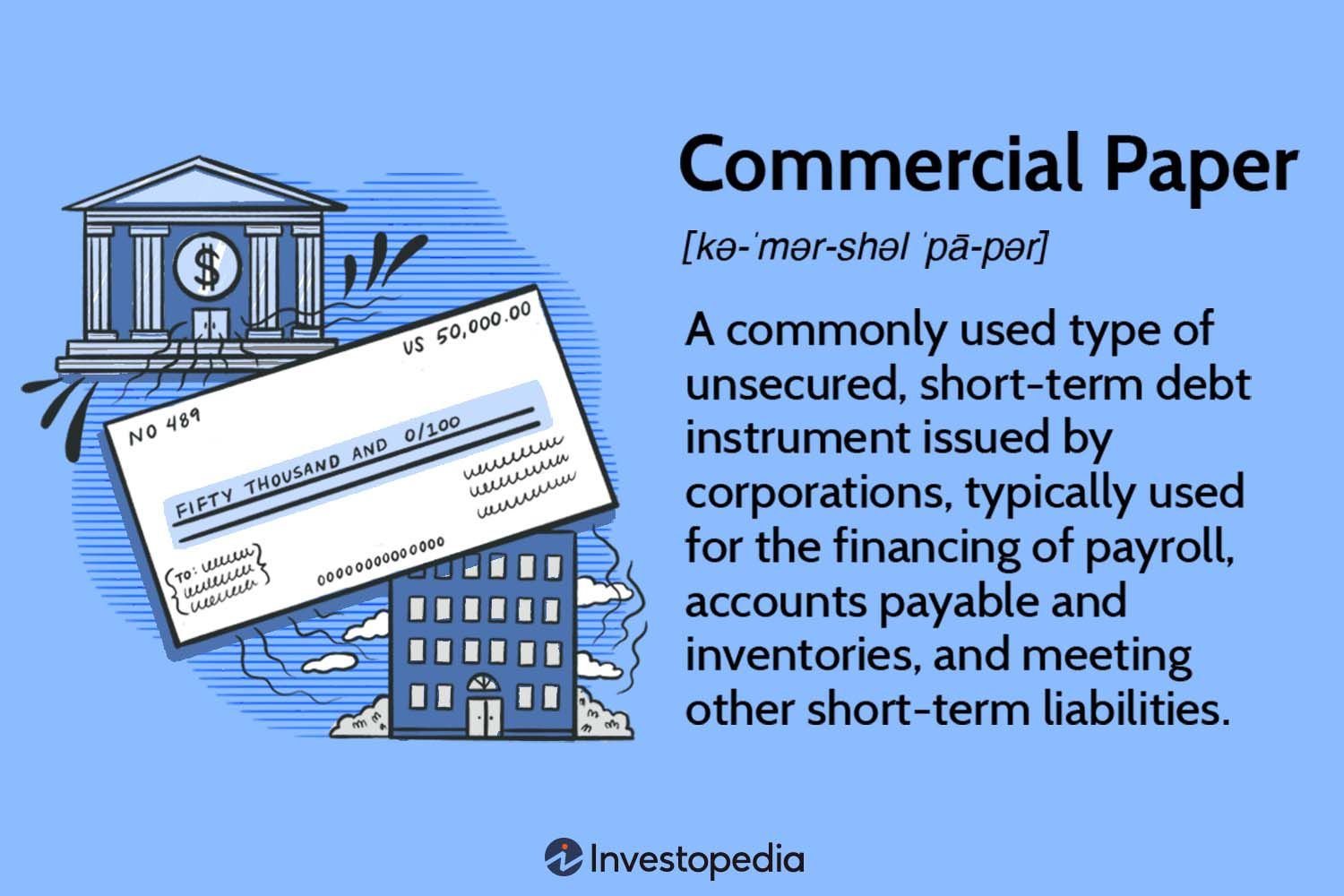Commercial bonds are a crucial aspect of business transactions, providing multiple benefits to both parties involved. So, what are commercial bonds and their benefits exactly? In simple terms, commercial bonds serve as a form of insurance that ensures the completion of a contractual obligation. They offer financial protection and peace of mind, safeguarding the interests of the parties involved in various business agreements. By guaranteeing that all contractual obligations will be fulfilled, commercial bonds facilitate trust, mitigate risks, and foster smooth business operations. Let’s delve deeper into the world of commercial bonds and explore the advantages they offer.
What are Commercial Bonds and Their Benefits
Commercial bonds are a crucial aspect of the business world, providing financial security and peace of mind for various parties involved in commercial transactions. Whether you’re a contractor bidding on a construction project or a business owner looking to protect your customers, understanding what commercial bonds are and their benefits is essential.
Understanding Commercial Bonds
Commercial bonds, also known as surety bonds, are legally binding contracts between three parties: the principal, the obligee, and the surety. These bonds ensure that the principal fulfills their obligations to the obligee, providing financial compensation in the event of non-compliance. In simpler terms, commercial bonds are a form of insurance that guarantees the completion of a contractual agreement or compensates for any financial loss resulting from a breach of contract.
There are different types of commercial bonds, each serving a specific purpose within various industries. Some common types include:
- Contract Bonds: These bonds are common in the construction industry and ensure that contractors fulfill their contractual obligations, such as completing a project as agreed.
- License and Permit Bonds: Required by government agencies, these bonds ensure that businesses adhere to regulations and licensing requirements. Examples include contractors, auto dealers, and mortgage brokers.
- Court Bonds: These bonds are often necessary for legal proceedings and include various subtypes like appeal bonds, guardian bonds, and fidelity bonds.
- Payment and Performance Bonds: These bonds protect project owners from financial loss in case a contractor fails to complete a project or meet payment obligations to subcontractors or suppliers.
- Business Service Bonds: These bonds provide financial security for clients of businesses that offer services within a client’s premises.
The Benefits of Commercial Bonds
Commercial bonds offer several benefits to different stakeholders involved in commercial transactions. Let’s explore some of the key advantages:
1. Assures Obligees of Financial Compensation
For the obligee, whether it’s a project owner, a government agency, or a client, commercial bonds provide financial security. In the event of a breach of contract by the principal, the obligee can make a claim against the bond to recoup financial losses. This assurance allows obligees to engage in contracts more confidently, knowing that they have protection in case the principal fails to fulfill their obligations.
2. Guarantees Completion of Projects
Contract bonds, such as payment and performance bonds, play a vital role in the construction industry. They provide assurance to project owners that contractors will complete the project as per the agreed terms and conditions. This guarantee ensures the timely completion of projects, reducing the risk of delays and financial losses for all parties involved.
3. Enhances Business Credibility and Trust
Obtaining a commercial bond is often a requirement for businesses operating in regulated industries or bidding on government contracts. Having a bond in place demonstrates a business’s financial stability, professionalism, and commitment to fulfilling contractual obligations. This enhances the business’s credibility and builds trust with clients, government agencies, and other stakeholders.
4. Protects Consumers and Clients
For businesses that provide services within a client’s premises, such as cleaning services or home healthcare providers, business service bonds offer protection to the clients. These bonds provide coverage in case of theft, property damage, or other incidents caused by an employee of the service provider. This protection reassures clients that they are financially safeguarded in the event of any unfortunate incidents.
5. Mitigates Financial Risks
By requiring contractors to obtain payment and performance bonds, project owners transfer the financial risks associated with project completion to the surety. In case of contractor default, the surety steps in to ensure the project’s completion, reducing the financial burden on the project owner. This risk mitigation mechanism provides added financial security and stability to all parties involved in construction projects.
6. Expands Business Opportunities
Commercial bonds can open doors to new business opportunities. Many government contracts and projects require contractors to possess specific bonds. By obtaining these bonds, contractors can bid on government contracts, expanding their business prospects. Similarly, businesses that require license and permit bonds can operate legally and gain access to a wider customer base.
7. Cost-Effective Alternative to Cash Collateral
Rather than tying up large sums of money as collateral, businesses can obtain commercial bonds at a fraction of the amount required for cash collateral. Bonds usually involve a premium payment, a percentage of the bond amount, which is significantly lower than the full collateral value. This cost-effective approach allows businesses to allocate their funds more efficiently and pursue growth opportunities.
In Conclusion
Commercial bonds are a critical component of the business landscape, providing financial security and numerous benefits to various stakeholders. By understanding what commercial bonds are and their advantages, businesses can safeguard their interests, build trust, mitigate risks, and seize new opportunities. Whether you’re a contractor, a business owner, or a consumer, commercial bonds play a vital role in ensuring smooth and secure commercial transactions.
Investing Basics: Bonds
Frequently Asked Questions
Frequently Asked Questions (FAQs)
What are commercial bonds and their benefits?
Commercial bonds are a type of surety bond that provide financial protection and guarantee fulfillment of contractual obligations. Here are some commonly asked questions about commercial bonds and their benefits.
What industries typically require commercial bonds?
Commercial bonds are commonly required in industries such as construction, real estate, transportation, and retail. They are often needed for licensing, permits, and public contracts.
How do commercial bonds benefit businesses?
Commercial bonds benefit businesses in several ways. They provide assurance to clients and customers that the business can fulfill its contractual obligations. They also help establish credibility and build trust in the marketplace.
What are the different types of commercial bonds?
There are various types of commercial bonds, including license bonds, contract bonds, bid bonds, performance bonds, and payment bonds. Each type serves a specific purpose and provides different forms of protection.
What is the process of obtaining a commercial bond?
To obtain a commercial bond, businesses typically need to contact a surety bond provider or an insurance broker who specializes in bond services. The provider will assess the business’s financial stability and other relevant factors before issuing the bond.
Are commercial bonds required by law?
In many cases, commercial bonds are required by law. Government agencies, municipalities, and other regulatory bodies often mandate businesses to obtain specific types of commercial bonds to ensure compliance and protect the public interest.
Can commercial bonds be used internationally?
Yes, commercial bonds can be used internationally. However, the requirements and regulations for commercial bonds may vary from one country to another. It is important to understand the specific requirements of each jurisdiction.
What happens if a business fails to fulfill its obligations covered by a commercial bond?
If a business fails to fulfill its obligations covered by a commercial bond, the affected party can file a claim against the bond. The surety bond provider will then investigate the claim and, if valid, compensate the claimant up to the bond’s coverage limit.
How long are commercial bonds valid?
The validity period of commercial bonds can vary depending on the specific bond type and jurisdiction. Some bonds may be valid for a specific term, while others may remain in effect as long as the business maintains the necessary requirements or license.
Note: The information provided above is for general guidance only and should not be considered as legal or financial advice. It is recommended to consult with professionals familiar with your specific situation to obtain accurate and up-to-date information.
Final Thoughts
Commercial bonds are essential financial tools that provide numerous benefits for businesses. These bonds act as a guarantee, assuring clients and partners that a business will fulfill its obligations and adhere to contractual terms. By obtaining commercial bonds, companies can gain trust, credibility, and a competitive edge in the market. These bonds also offer financial protection in the event of contract breaches, ensuring that the injured party receives compensation. Furthermore, commercial bonds contribute to fostering stable and transparent business environments, benefiting both businesses and consumers alike. In summary, commercial bonds play a crucial role in ensuring trust, credibility, financial protection, and stability, making them an indispensable asset for any business.



